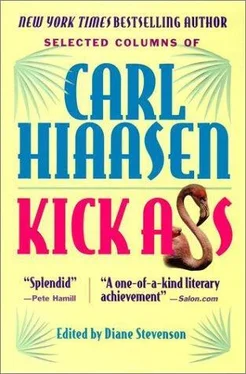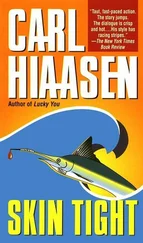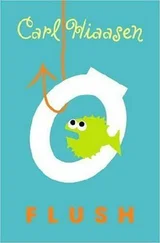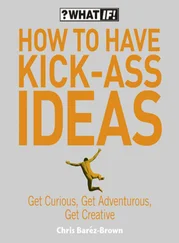Cynics see the unfolding scandal as yet another sleazy chapter of Miami-style corruption. Others might regard it as a historic opportunity to broaden the political process to include those who customarily have been shut out—the dead, distant or otherwise ineligible voter.
A strong democracy depends on citizen involvement, and what was Alberto Russi allegedly doing but striving to involve as many citizens as possible?
Talk about open elections—Miami has a chance to redefine the term. What a bold experiment it would be to unlock the polls not just for the sneaky pals of candidates, but for anyone, anywhere.
Because Miami's image reflects upon that of the whole state, an argument could be made that all Floridians should be entitled to vote here. And because Florida's image reflects upon that of the whole country, a case likewise could be made that all Americans should be able to take part.
Indeed, every U.S. taxpayer has a substantial stake in Miami's future, based on the FBI's investment of time and manpower here.
Theoretically, a ballot cast from Nome, Alaska, is every bit as relevant as a ballot cast from Hialeah Gardens. And with millions of absentee ballots pouring in, it would be hard for our local scammers to steal an election.
The prospect of voting in Miami without actually having to reside here (and constantly worry about commissioners going to prison or the city going bankrupt) could have national appeal. Get registered now!
Or perhaps you already are, and just don't know it.
Strike a blow for democracy: Sell your vote
January 15, 1998
Ten bucks a vote.
That's what some Overtown residents got paid to cast absentee ballots for Xavier Suarez before the Nov. 12 mayoral runoff.
Suarez, who won the election, says neither he nor his campaign staff was involved in any votes-for-cash scheme. Then who was paying off those people in the parking lot of the St. John Baptist Church?
A patriot, that's who! Overzealous perhaps, but still a red-blooded American patriot.
Everybody complains about low voter turnout in Miami but nobody does anything about it. Now, finally, here's a guy who put his money where his mouth was.
Oh sure, we all say we love democracy, but how many of us are willing to dig into our pockets and pay cash for it? How many of us value the electoral process so highly that we'd spend a long hot day rounding up total strangers, then haul them downtown to cast their absentee ballots?
Mayor Suarez should be proud to have a secret supporter who cares enough to make such a financial sacrifice, yet is so modest that he won't come forward to take credit for his bold deeds.
I see this anonymous Angel of Overtown, whoever he might be, as a rock-ribbed Citizen Doe who simply got fed up with voter apathy.
He resolved to do whatever it took to get voters to the polls, and what it took was moola. He probably didn't think of it as a bribe, but as a $10 voucher to a civics lesson.
Maybe he went a bit too far, but such was his fervent concern for the future of his beloved city. Barry Goldwater, another brave American, said it best: Extremism in the defense of liberty is no vice!
Well, the same goes for vote-buying. It's extreme, for sure; a crime, yeah, if you want to get picky. But a vice? Not so fast.
Yes, hard questions have been raised about the motives of the $10 voters. Is this really the kind of political system Thomas Jefferson envisioned, a system in which people sell their ballot privileges on the streets?
Of course not. But neither could Jefferson nor any of the founding fathers have envisioned a place such as Miami, where pretty much everything and everybody has been up for sale at one time or another.
When Cesar Odio was city manager, he was for sale. When Miller Dawkins was a city commissioner, he was also for sale. And when Manohar Surana was the city's finance chief, he was for sale, too.
So it's understandable why some residents might feel their time has come. If public officials peddle themselves to the highest bidder, why (voters might wonder) shouldn't we do the same?
The sentiment grows with each new scandal. It's possible to foresee a day when every eligible voter in Miami refuses to go to the polls, unless they get paid first. On a positive note, voter turnout could easily soar to 95 percent or higher, depending on how much cash is spread around.
Purists argue that bribing voters can taint the political process. That might be true in other cities, but in Miami the practice actually could lead to cleaner elections.
Look what happened in the Overtown incident. Despite rampant ballot-buying, not a single penny was paid to voters who were already dead. That's a record of which other precincts would be darned proud!
Perhaps we'll never know the identity of the Angel of Overtown, or what brought him and his wad of greenbacks to that church parking lot.
Yet we can still applaud the populist ardor that made him reach out so big-heartedly to his fellow citizens.
He definitely made a difference in the mayor's race. He got lots more citizens interested and involved, if only for a few hours.
Most importantly, he showed us how a participatory democracy can also be a profitable one, for voters and candidates alike.
A patriotic soul won't let death cost him a vote
February 8, 1998
This week, Miami-Dade Circuit Judge Thomas S. Wilson Jr. will begin hearing evidence of widespread vote fraud in the absentee ballots cast in Miami's November general election. One of those disputed ballots bore the signature of a man named Manuel Yip, who submitted the following sworn deposition:
Q: Please state your occupation, Mr. Yip.
A: Well, you could say I'm retired. Seriously retired.
Q: And where do you live?
A: Bad choice of words.
Q: All right, where do you reside?
A: Right here on Second Avenue.
Q: In a house or an apartment?
A: Very funny. It's a graveyard, as any dolt can plainly see.
Q: So you are legally—
A: Dead, that's correct. I'm deader than a doornail. Expired, expunged, departed, checked out, eighty-sixed, sleeping the big sleep, whatever. And I suppose you got a problem with that?
Q: Yet you voted in the city elections on Nov. 4.
A: You betcha I voted, and nobody had to pay me, either. It's my proud duty as a late citizen of this great democracy. Ever since I passed away, I've become much more involved in local politics.
Q: Why is that?
A: Well, for one thing, I've had a lot more free time to study up on the candidates.
Q: And you've voted in how many other elections?
A: Before or after I died?
Q: After.
A: A total of four times.
Q: And always by absentee ballot?
A: No, smart guy, I just hop out of my coffin and hitchhike down to the polls. What're you, a comedian? Of course I vote by absentee ballot. I'm frigging deceased, remember?
Q: Mr. Yip, there's no need to lose your temper.
A: What, you think dead folks don't keep up with the current events? I see the headlines, pal. Newspapers blow through here all the time. My understanding is, anybody can vote in Miami. It's like the Publishers Clearing House—all you gotta do is fill out a form and send it in, no questions asked.
Heck, you don't need to live in your district. You don't even need to live in the city. Me? It just so happens I live in the hereafter.
Q: You've made your point, Mr. Yip.
A: Why shouldn't my vote count the same as the ones from Goulds and Hialeah Gardens? Heck, at least this cemetery is inside the Miami city limits.
Q: Mr.Yip, did anyone representing a candidate encourage you to cast a ballot?
A: I didn't need any encouragement. The corruption scandals, the budget disaster—how could I just lie here in heavenly repose and let the city go down the tubes?
Читать дальше









